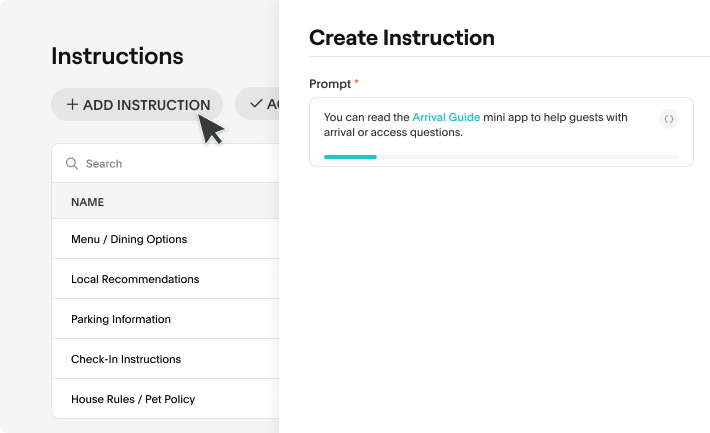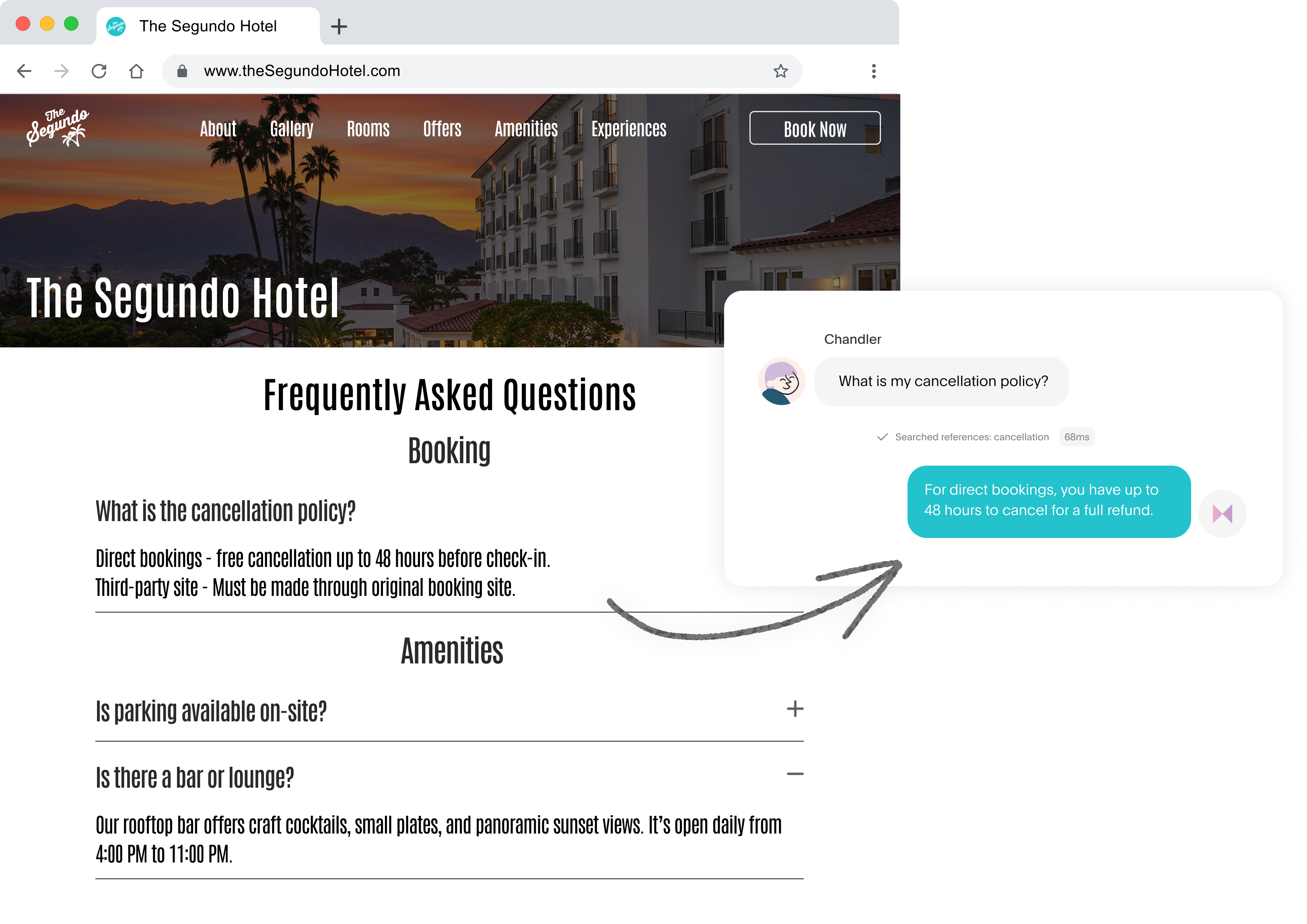Hotel vs Resort
Learn the key differences between hotels and resorts, from amenities and locations to guest expectations. This guide helps travelers choose the right stay and helps hospitality professionals position their property effectively.
Hotel vs Resort: What’s the difference and why it matters.
When travelers search for their next getaway, the terms “hotel” and “resort” often come up interchangeably. While both provide accommodation and service, they are not the same. Understanding the difference can help travelers choose the right experience, and it can help hospitality professionals position their property in a way that matches guest expectations.
What is a hotel?
A hotel is an establishment that provides short-term lodging, usually in private rooms. Hotels range from budget-friendly to luxury and can vary greatly in size and amenities. The main purpose of a hotel is to give travelers a comfortable place to stay, often with services like housekeeping, front desk support, and food and beverage options.
Common hotel features:
- Rooms designed for overnight or short stays
- On-site dining such as restaurants, bars, or room service
- Business services like meeting rooms, Wi-Fi, and workspaces
- Concierge and front desk staff
- Fitness centers or small pools in some cases
Hotels are most commonly located in city centers, near airports, or close to popular tourist attractions. They are designed to serve travelers who need convenience and flexibility.
What is a resort?
A resort goes beyond just providing accommodation. Resorts are destinations in themselves, offering not only lodging but also a wide range of leisure, recreation, and entertainment options. Guests often choose resorts for vacations where relaxation and activities are the main goals.
Common resort features:
- Spacious guest rooms or suites
- Multiple dining options
- Swimming pools, spas, and wellness centers
- On-site entertainment such as live music or shows
- Sports and recreation like golf, tennis, water sports, or skiing depending on location
- Kids clubs or family-focused activities
Resorts are often located in scenic or recreational areas such as beachfronts, mountains, or secluded countryside. Many guests spend most of their time within the property, enjoying all-inclusive packages or curated experiences.
Key differences between hotels and resorts.
While both hotels and resorts aim to provide hospitality, there are several important differences.
1. Purpose of stay
- Hotel: Primarily a place to stay overnight, often as part of a trip with other plans.
- Resort: A destination itself where the property provides most of the entertainment and leisure activities.
2. Location
- Hotel: Often located in city centers, business districts, or near airports.
- Resort: Typically found in scenic or recreational locations such as beaches, mountains, or islands.
3. Amenities
- Hotel: Basic amenities with optional extras like fitness centers or pools.
- Resort: Comprehensive amenities including spas, multiple pools, fine dining, and organized activities.
4. Length of stay
- Hotel: Usually short-term stays, from one night to a week.
- Resort: Guests often book longer stays, sometimes a week or more, to take full advantage of amenities.
5. Pricing
- Hotel: Pricing can be flexible, from budget to luxury, usually with room-only or bed-and-breakfast options.
- Resort: Pricing often includes packages, sometimes all-inclusive, covering food, drinks, and activities.
6. Guest expectations
- Hotel Guests: Expect comfort, convenience, and a base for exploring.
- Resort Guests: Expect relaxation, entertainment, and everything provided on-site.
Which one is right for different types of travelers?
The choice between a hotel and a resort depends on the traveler’s goals.
- Business travelers: Usually prefer hotels for their location, convenience, and business services.
- Leisure travelers: Resorts appeal to those looking for a full vacation experience without needing to leave the property.
- Families: Resorts can be ideal thanks to family-friendly amenities like kids clubs, activities, and multiple dining choices.
- Solo or short-stay travelers: Hotels often make more sense for shorter trips or urban exploration.
FAQs about hotels vs resorts
1. Is every resort a hotel?
Technically, resorts are a type of hotel but with more facilities and a broader focus on leisure and entertainment.
2. Are resorts more expensive than hotels?
Not always. While many resorts are luxury-focused, some offer budget-friendly packages. The difference often lies in the inclusivity of meals, activities, and services.
3. Can a boutique property be a resort?
Yes. Some boutique properties offer resort-like amenities such as spas, curated dining, or activity programming, especially in leisure destinations.
4. Do hotels ever become resorts?
Yes, when hotels expand their offerings to include extensive leisure activities and entertainment, they may be classified as resorts.
Final thoughts
The difference between a hotel and a resort comes down to purpose, amenities, and guest expectations. Hotels are designed for convenience and short stays, while resorts create immersive vacation experiences with extensive activities and services. For hospitality professionals, understanding these distinctions helps in positioning their property effectively, ensuring that guests find exactly the kind of experience they’re searching for.
Time is one the greatest asset and one of the things that [Akia] has helped us out as a property tremendously.
Emily F.
Executive Assistant
Time is one the greatest asset and one of the things that [Akia] has helped us out as a property tremendously.
Ethan Fishbane
Director of The Front Office, Prince Waikiki
Schedule of events and useful links
Never miss a beat with our comprehensive schedule of events and collection of useful links.

Schedule of events and useful links
Never miss a beat with our comprehensive schedule of events and collection of useful links.

See Akia in action!
Schedule a demo today and learn how our hospitality platform can transform your operations and elevate your guest experience.














